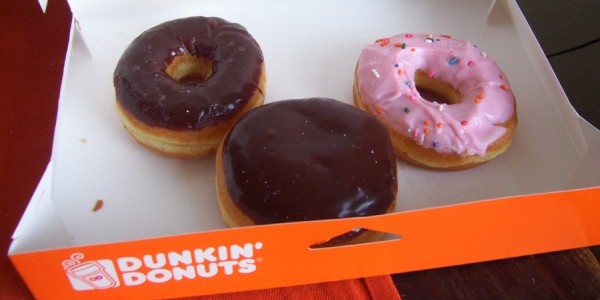
It is not uncommon to see a student in my classroom eating a bag of chips or biting into a hoagie. I mostly understand. It is hard to learn when you are hungry, and, as a mother, I don’t like the idea of my students, people the age of my children, skipping meals. Still, it’s annoying to have one person eating when everyone else isn’t. It makes everyone hungry and thus fuels discontent. Besides, the sounds of chewing and slurping are disruptive—unless everyone is making them.
Sometimes, I will bring in a cake for the last day of class, though I am ambivalent about doing this. I feel that it smacks of maternalism (especially since, as the above suggests, I already suspect that I conform excessively to a maternal stereotype), and I worry about giving the wrong impression, since course evaluations are distributed in the last class. A cake can look suspiciously like a bribe.
Having given this issue of food and learning some thought, I realize that my ideal classroom would be one where we would all eat together often—and eat well. I have a meal in mind—at least a fantasy meal. It comes from a lecture Virginia Woolf delivered in 1928 and later revised into her well-known feminist treatise, A Room of One’s Own. Woolf connects good food to good talk, showing how one incites the other, and how either is more difficult without the other.
Woolf contrasts two meals taken at Oxbridge University (her fictional amalgam of Oxford and Cambridge). The first is an elegant luncheon at a men’s college there. She describes the opulent setting, the result of a long history of wealthy benefactors; then, she describes the meal. Her description is too good to abbreviate, though it will make you hungry:
… the lunch began with soles, sunk in a deep dish, over which the college cook had spread a counterpane of the whitest cream, save that it was branded here and there with brown spots like the spots on the flanks of a doe. After that came the partridges, but if this suggests a couple of bald, brown birds on a plate you are mistaken. The partridges, many and various, came with all their retinue of sauces and salads, the sharp and the sweet, each in its order; their potatoes, thin as coins but not so hard; their sprouts, foliated as rosebuds but more succulent.
Each course, she explains, is accompanied by wine, and the whole repast culminates in a dessert: “wreathed in napkins, a confection which rose all sugar from the waves. To call it pudding and so relate it to rice and tapioca would be an insult.”
In the context of such a meal, Woolf notes that conversation moves forward in the best sort of way: “And thus by degrees was lit, halfway down the spine, which is the seat of the soul, not that hard little electric light which we call brilliance, as it pops in and out upon lips, but the more profound, subtle and subterranean glow, which is the rich yellow flame of rational intercourse.”
From luncheon at the men’s college, she then proceeds to dinner at the newly created women’s college next door. Here, the setting and the food are very different. The hall is modest and the meal even more so:
Here was the soup. It was a plain gravy soup. … The plate was plain. Next came beef with its attendant greens and potatoes—a homely trinity, suggesting the rumps of cattle in a muddy market, and sprouts curled and yellowed at the edge, and bargaining and cheapening, and women with string bags on Monday morning. … Prunes and custard followed. … Biscuits and cheese came next, and here the water-jug was liberally passed round, for it is the nature of biscuits to be dry, and these were biscuits to the core.
In the course of this repast, she notes, “conversation flagged.”
Woolf’s meals are meant to demonstrate the subtle but important differences that result from wealth and relative poverty. I say relative poverty because the women at Oxbridge are not exactly poor: they have the basic necessities; they are allowed to learn. What they don’t have are the physical amenities and culinary pleasures that provide a delightful context for learning. Brilliance can be had on prunes and dry biscuits, but brilliance is sharp and solitary. What one wants, for education to proceed at its best, is the “rich yellow flame of rational intercourse,” and this requires the extras of comfort, beauty, and a rich dessert.
On my way into school in the morning, I pass Dunkin’ Donuts and will occasionally buy a few dozen Munchkins for my class. When these are passed around, most students take one or two (there are always a few ascetics who refuse entirely). Our discussion proceeds and is perhaps mildly enlivened by the sugary high. But in general, I can’t say that the Munchkins do much for the quality of talk. They are not prunes and dry biscuits exactly, but they are certainly not soles and partridges, and thus not likely to ignite that “rich yellow flame.”


